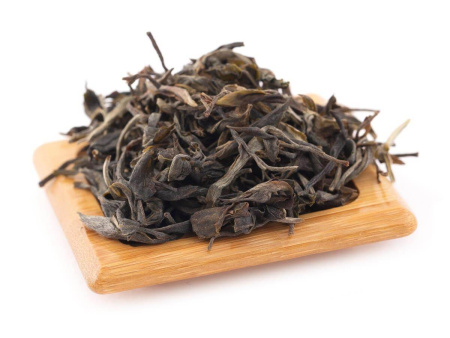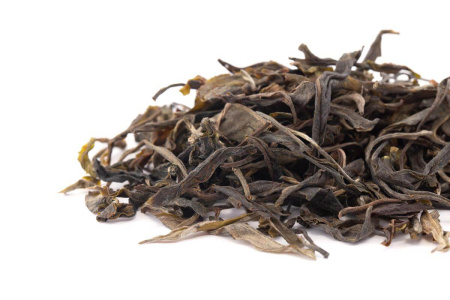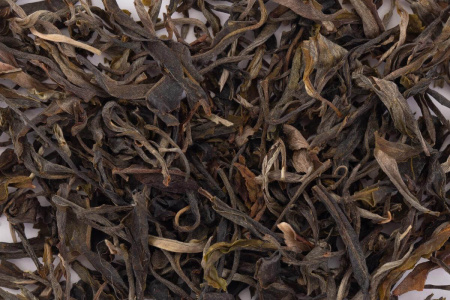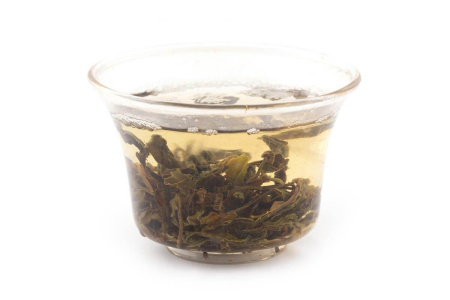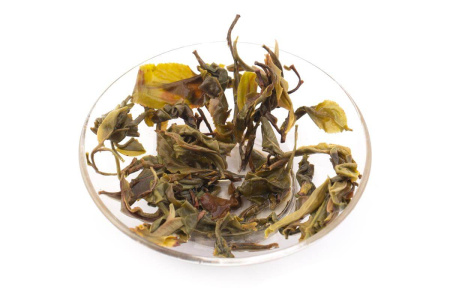

-
7 Saturation
-
7 Aftertaste
-
7 Aroma
-
7 Effect
-
8 Balance
-
7 Body
When warmed by the breath, a strong, warm, and deep aroma emerges, with fragrant, brine-like notes and hints of dried fruit. After rinsing, this intensifies, adding sweet fruity notes, roasted corn, grape leaves, and spring primroses.
The flavor of the brewed tea is strong, complex, multifaceted, and variable. It features a pleasant tartness, a well-placed bitterness, hints of blackcurrant, and hints of dried apricot and young corn. The flavor nuances are highly variable: fruity sweetness and natural astringency (typical of sheng teas from straight-trunk trees) compete for prominence.
The aftertaste is long-lasting with a lingering fruity sweetness and pleasant tartness.
To brew, you need to take 5-7 grams of tea leaves per 100 ml of gaiwan and slightly cooled water with a temperature of no more than 90°C, since the tea is still young and the leaf is tender.
This tea is an excellent invigorator, promotes concentration, clarifies, and sobers. You can drink it now, following the brewing method, but with age it will become softer and infused with sweet honey-fruity notes of flavor and aroma.
|
Name in Chinese
|
那卡乔木 |
|
Pinyin
|
nàkǎ qiáomù |
|
Translation
|
Tall trees from Naka |
|
Country
|
China |
|
District
|
Xishuangbanna Dai Autonomous Prefecture |
|
Habitat
|
Нака (那卡, Nà kǎ) |
|
Date of raw material production
|
2021 |
|
Type of tea raw material
|
Young trees (50-100 years) |
- Reviews
- Vkontakte





